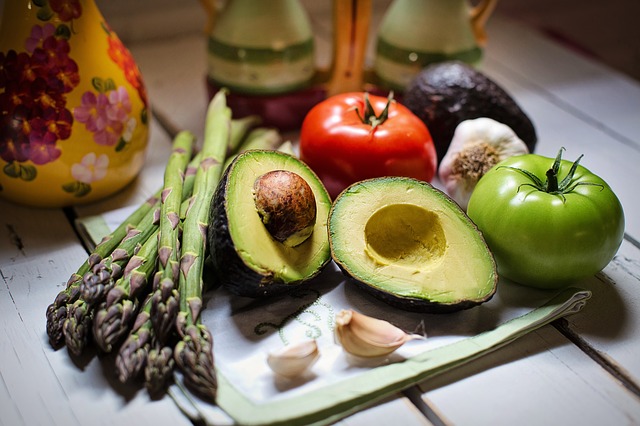A lot of people do not have the required quantity of fiber needed for optimum health maintenance. If your goal is to achieve weight loss, insufficient daily fiber consumption is not only disastrous, but will stop you from reaching your goal.

Fiber has many benefits. Apart from helping us minimize the risk of developing harmful diseases, it can also assist in achieving long- term weight loss.
This write-up provides detailed explanation about fiber, its benefits, diseases it combats, how it helps in weight loss control and how we can get more of it in our daily diets.
What is Dietary Fiber?
Dietary fiber refers to complex carbohydrate which cannot be digested. Although, fibers are of various kind, however, for the sake of this write-up, we shall classify fiber into two broad categories. They are insoluble and soluble fiber. While the soluble fiber dissolves in water, the insoluble fiber does not. The insoluble fiber is also called roughage because it passes through the body intact and also helps in cleaning the digestive systems. All plant foods contain fiber.
Benefits of Fiber
Fiber cannot be digested but it plays very important roles in our daily diet. Here are its benefits.
- It aids digestion.
- It helps in disease control.
- It helps in weight loss.
-
Fiber Aids Digestion
Insoluble fiber remains intact in the stomach. It also assists in cleaning the intestines. This fiber absorbs water as it passes through the body.

Soluble fiber is broken down as soon as it reaches the bowel. Here, it is acted upon by natural bacteria which feed and multiply on it.
Fiber slows down the rate of digestion and this result in a more gradual emptying of food from the stomach.
Fiber prevents constipation. This is done by increasing the quantity and softness of stools through the increase of water absorption and the growth of natural bacteria mentioned above.
Since fiber aids softness of stools, they make stools to be quickly and easily ejected from digestive system. Hence, the rate at which our bodies are exposed to potential toxins is limited by fiber.
-
Fiber Helps To Prevent Diseases
Although, there is on-going research about the health benefits of fiber, the roles it plays in disease control are numerous. Among them are:
- obesity
- prostate cancer
- hemorrhoids
- colon caner
- intestinal disorders
- cancer of the bowels
- breast cancer
- cardiovascular disease
- gallstones
- diabetes
In addition, most food that are low in fat are also rich in fibre. Such foods are also good sources of other nutrients that help in controlling these and other serious medical conditions.
-
Fiber Enhances Weight Loss
The role of fiber in weight loss is so crucial that it has been popularly referred to as the weight watcher’s dream.
According to research, people who consume fiber- rich foods have lower body weights. Besides, their body mass index and body fat are relatively low. Many researchers are of the opinion that high rate of obesity occurs among western nations (where diets are low in fiber content) compared with other regions of the world like Africa and Asia (where diets are predominantly plant based).
Fiber is beneficial to people who wish to achieve weight loss because:
- Longer time is required to chew and digest it, making us feel satisfied sooner.
- It fills the space in our stomach until our hunger becomes satiated.
- It helps us consume fewer total calories.
- Since the body cannot absorb fiber, it doesn’t add calories.
- Is found in foods that are naturally low in fat and calories.
- Prevents fat absorption.
- Is found in foods containing vitamins and minerals.
What is the Recommended Fiber Intake?
The Recommend Daily Intake (RDI) for dietary fiber is approximately given as 30 gram per day. It is unfortunate to discover that many processed foods are deficient in the required quantity of fiber; hence, a lot of people get less than what is required.
Just as fiber consumption is essential, consuming over 50 gram per day is over consumption. This can result in health complications like diarrhea and bloating. It can also affect the absorption of essential vitamins and minerals into the body.
How to Increase Fiber Intake
The best way of getting more fiber in your daily diet is by increasing the consumption rate of complex carbohydrates. The body requires time to make adjustment to the increase in fiber intake as excessive increase can result to bloating, gas, diarrhea and discomfort. There is need to increase water intake as you increase your daily fiber intake. Gradual addition of fiber in your daily diet is essential to prevent the problems mentioned above.
Below are some ways of getting more fiber in your diets.
- Replace fruit juices with whole fruits.
- Eat more of brown rice and whole-grain products and less of white rice, pasta and bread.
- For breakfast, consider whole-grain cereals.
- Eat raw vegetables.
- Eat less of meat and more of legumes many times weekly.
- Consider international dishes that are rich in whole grains and legumes.
- Replace processed foods with fresh foods.
- Regularly consume vegetable at dinner.
- Consume baked potatoes’ skin.
- Your soup should be rich in veggies, dried beans or barley.
- Add beans to stews.
- Salads should be rich in apples, mangos, oranges, or pears.
- Avoid high -fat snack and highly salted popcorn.
- Avoid skipping breakfast.
- Consider fiber-rich packaged/processed foods.
Below is a list of the best sources of fiber.
- Legumes
- Whole grains
- Whole-wheat pasta
- Nuts and seeds
- Fruits
- Vegetables
- Beans
- Brown rice
- Peas
- Jacket potatoes
- Lentils
Eating varieties of these fiber-rich foods is the best and surest way of getting fiber in your daily diet. Ensure you start slowly as you introduce more fiber into your diet. Effects a change at a time to enable your body get sufficient time for adjustment.
Food Labels and Fiber Content
An easy way to identify the fiber content of a food is by reading food labels on the Nutritional Food Tables. You will discover if a food contain a little, lot of fiber or no fiber at all.
Foods with high fiber content should contain at least 3 gram of fiber per serve while those food that are source of fiber should contain no less than 1.5 gram of fiber per serve.
Fiber Supplements
Fiber supplement becomes necessary the moment your diet lacks sufficient fiber. Note that the preferred source of fiber is fresh foods. However, should you decide to seek help on the need to increase the fiber in our diet, consult an experienced dietitian, nutritionist or a qualified health professional.
Conclusion
Sufficient fiber intake is essential for your health. However, it is more important for you to have weight loss goals. Endeavor to get enough fiber in your diets today.